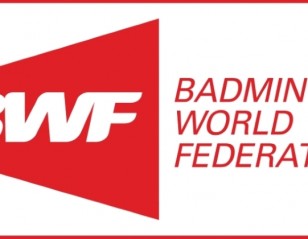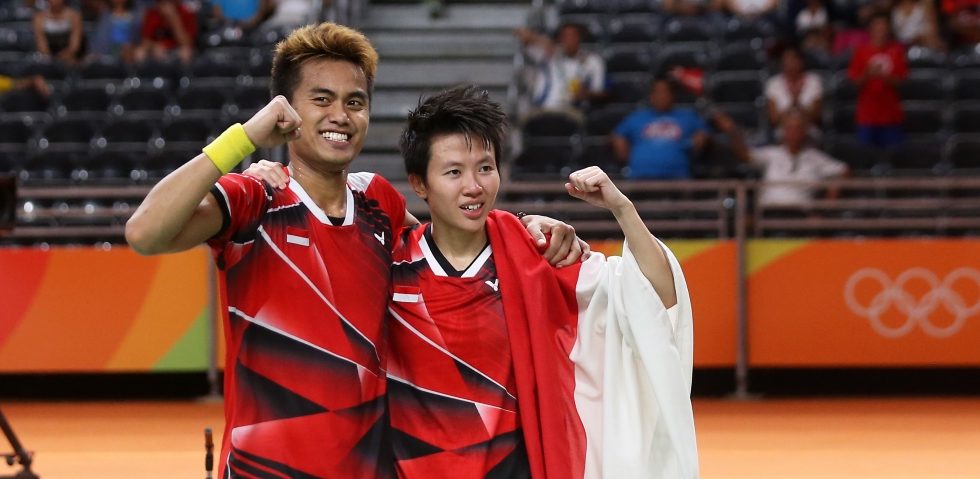
Bouncing Back in Style
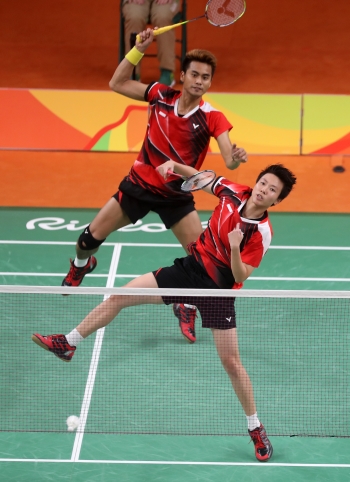 From crashing out of the early rounds of World Superseries events, to winning the Olympic gold medal, it has been a roller-coaster season for Tontowi Ahmad and Liliyana Natsir.
From crashing out of the early rounds of World Superseries events, to winning the Olympic gold medal, it has been a roller-coaster season for Tontowi Ahmad and Liliyana Natsir.
The Indonesians took home the country’s first-ever Olympic gold medal in Mixed Doubles at the end of a dream campaign, during which they did not drop a game in six matches. And yet, just a couple of months ago, the world No.2 pair were going through one of their worst phases in their career.
At the BCA Indonesia Open in June, in front of an expectant home crowd, the second seeds crashed out in the second round to a scratch Danish combination that included a Women’s Singles specialist. The next week was just as bad: a first-round loss to another Danish combination in the Xiamenair Australian Open.
With that kind of form, few would have backed Tontowi Ahmad and Liliyana Natsir to come away from Rio with a medal, let alone the gold.
And when they were drawn to play their nemeses, China’s Zhang Nan and Zhao Yunlei in the semi-finals, their most ardent fans must have kissed their hopes goodbye – for the Indonesians hadn’t beaten the Chinese in their last eight encounters. The most bitter of these losses had been the one on home turf during the TOTAL BWF World Championships last year, when the Indonesians had faltered after having two match points. Since that loss, the lack of self-belief had been painfully evident with the Indonesian duo lurching from one disaster to another. Three first-round losses late last year was evidence of the crisis they found themselves in.
The semi-finals in Rio, however, completely overturned the script as Ahmad and Natsir demolished reigning champions Zhang and Zhao in straight games, before meting out the same treatment to their opponents in the final, Chan Peng Soon and Goh Liu Ying of Malaysia, for the gold medal.
What had spurred this dramatic shift in fortunes?
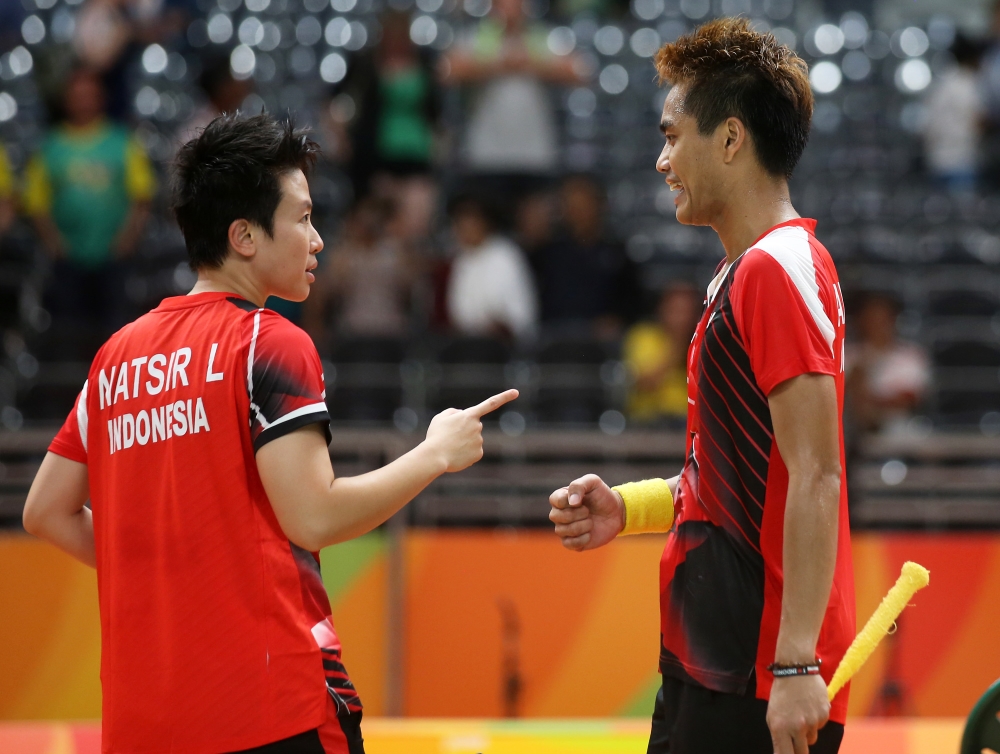
The most apparent change was in their on-court demeanour. Errors were accepted with gracious smiles and encouraging taps on shoulders, unlike on a few earlier occasions, when on-court quibbles were not uncommon.
Rexy Mainaky, PBSI’s High Performance Director, and a former gold medallist himself, said the communication between the two had improved after Ahmad and Natsir spent time working with a psychologist.
“They had to be honest with each other,” said Mainaky. “They had to come out with whatever was inside. They had to work with a psychologist… not just to control their feelings but to find solutions. It worked. The psychologist worked hard with them and with the coaches.
“Liliyana maybe forgot that Tontowi is a responsible person – he’s married and has a child — maybe she was thinking he’s still young, needs someone to take care of him. So the communication had to be positive. We worked hard, we talked to them.”
In the semi-final against Zhang and Zhao, the Indonesians, far from being intimidated, were nearly flawless in executing their game-plan.
The World Championships loss had stung, and it was that result that prompted the soul-searching that was to eventually result in the gold medal.
“Of course, to lose in the World Championships semi-final was hurtful. We were down in 2015,” recalled Natsir. “We consoled ourselves that it was okay to lose in the Superseries and we kept thinking of the Olympics. This is reward for all the hard work. Indonesia has a tradition of doing well at the Olympics. This is our gift to Indonesia for Independence Day.”
Olympic and Paralympic News

Zhang & Wang: Stars With Different Legacies 4 June 2023
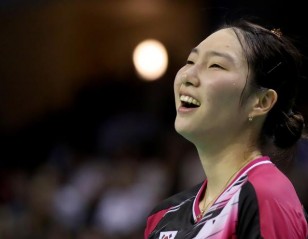
Sung Energised by Recent Successes 1 March 2017
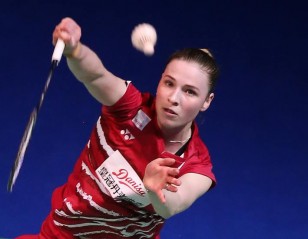
Line Kjaersfeldt Targets GPG Success 20 February 2017
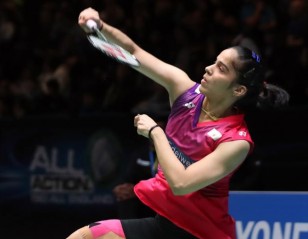
Saina Nehwal: ‘I Feel Lighter On Court’ 20 January 2017
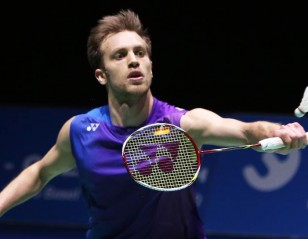
Zwiebler Hungry Despite Setbacks 18 January 2017
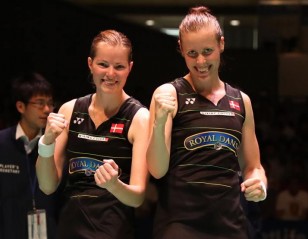
Danish Duo Relish Rio Memories 17 January 2017
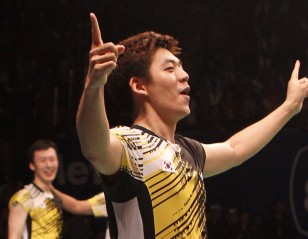
Men’s Doubles – 2016 in Review 27 December 2016
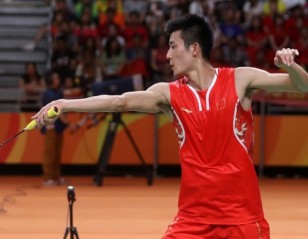
Badminton Leads China Ratings 1 September 2016
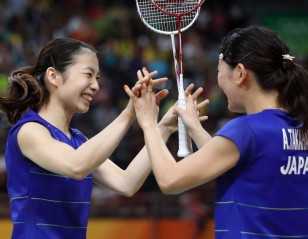
Badminton on Olympic Channel 30 August 2016
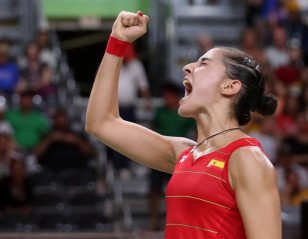
European Resurgence in Rio 26 August 2016
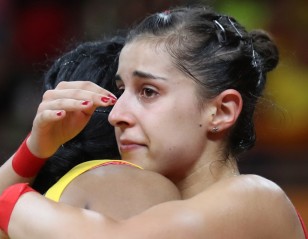
A Revolution in Rio 21 August 2016
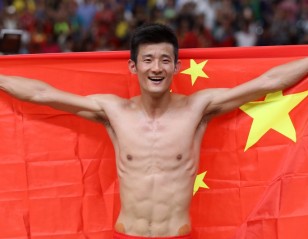
Lee’s ‘Long’ Suffering Continues – Men’s Singles Final: Rio 2016 20 August 2016
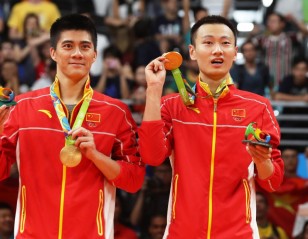
Serves – Malaysia, Wrong! – Men’s Doubles Final: Rio 2016 19 August 2016
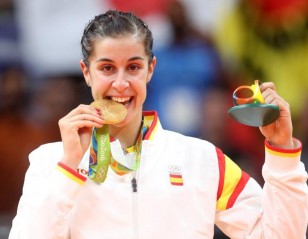
Latina Carolina Reigns! – Women’s Singles Final: Rio 2016 19 August 2016
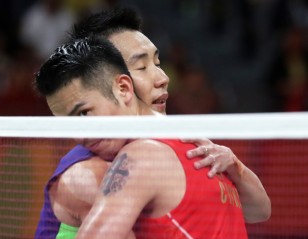
Lin Dan Dethroned – Men’s Singles Semi-finals: Rio 2016 19 August 2016
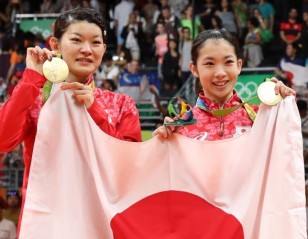
Golden First for Japan – Day 8 – Women’s Doubles Final: Rio... 18 August 2016
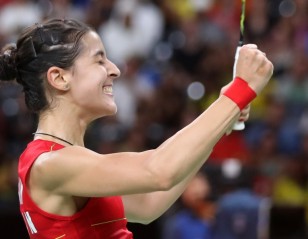
Marin-Sindhu Battle for History – Women’s Singles Semi-finals: Rio 2016 18 August 2016
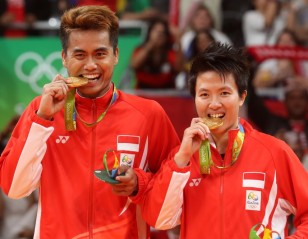
Golden Day for Indonesia – Mixed Doubles Final: Rio 2016 17 August 2016
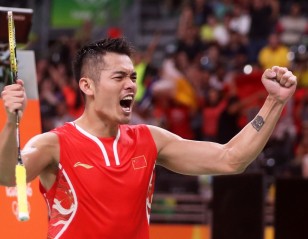
Lin Survives; Lee Cruises – Day 7 – Men’s Singles Quarter-Finals: Rio... 17 August 2016
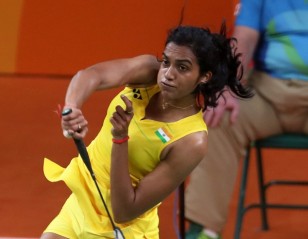
Sindhu Sizzles into Semis – Day 6 Session 2: Rio 2016 17 August 2016
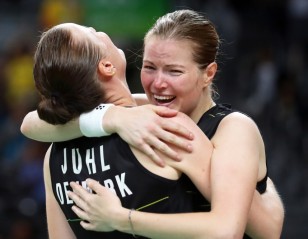
History-Making Danes Thwart China – Day 6 Session 1: Rio 2016 16 August 2016
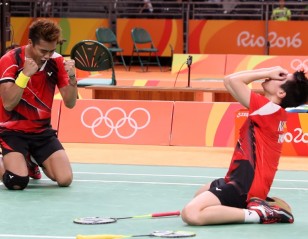
China’s Doubles Giants Humbled – Day 5 Session 2: Rio 2016 15 August 2016
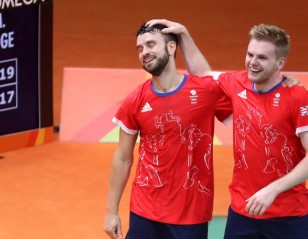
Fu/Zhang Ride Out Storm – Day 5 Session 1: Rio 2016 15 August 2016
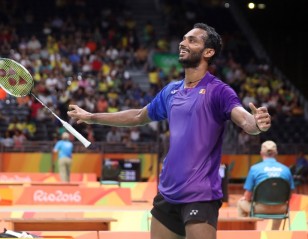
Jorgensen Chugs On – Day 4 Session 2: Rio 2016 15 August 2016
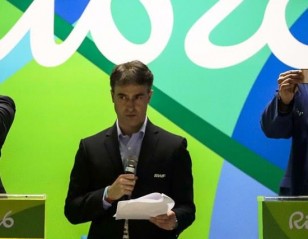
Quarter-Finals Drawing Attention – Rio 2016 15 August 2016
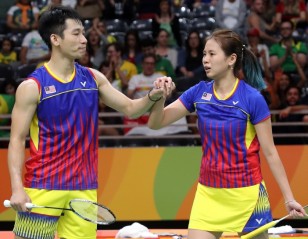
Chan/Goh in Semi-finals – Day 4 Session 3: Rio 2016 14 August 2016
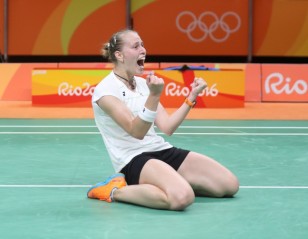
Nehwal Falls to Ulitina – Day 4 Session 1: Rio 2016 14 August 2016
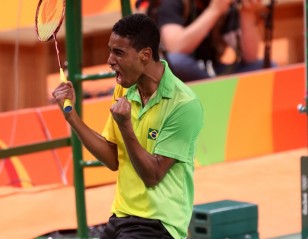
Brazil Badminton Grabs Spotlight 14 August 2016
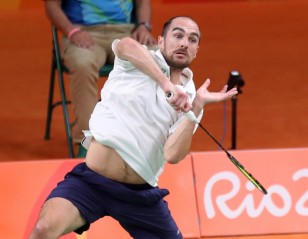
Evans Shakes Off Oliveira – Day 3 Session 3: Rio 2016 13 August 2016
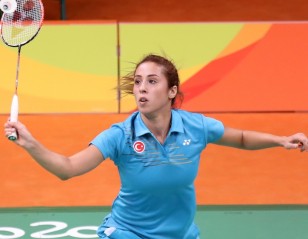
Ellis/Langridge Through – Day 3 Session 2: Rio 2016 13 August 2016
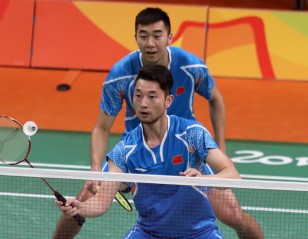
World Champs Out – Day 3 Session 1: Rio 2016 13 August 2016
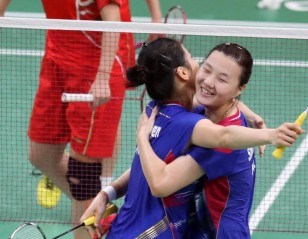
Koreans Double Their Account – Day 2 Session 3: Rio 2016 12 August 2016
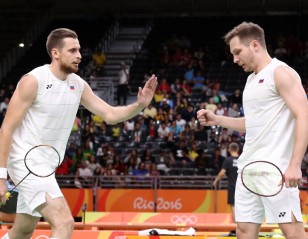
Ivanov/Sozonov in Quarters – Day 2 Session 2: Rio 2016 12 August 2016
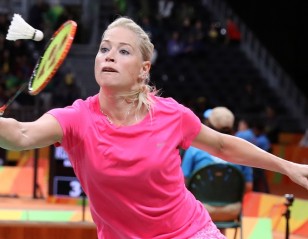
Mixed Doubles Drama in Group B – Day 2 Session 1: Rio... 12 August 2016
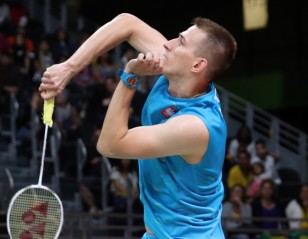
Cordon Falls to Dziolko – Day 1 Session 3: Rio 2016 12 August 2016
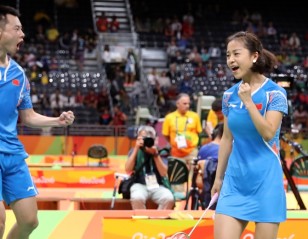
Xu/Ma Stage Escape – Day 1 Session 2: Rio 2016 12 August 2016
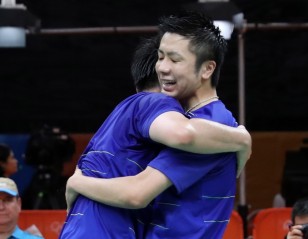
Endo/Hayakawa Clinch Thriller: Day 1 Session 1 – Rio 2016 12 August 2016
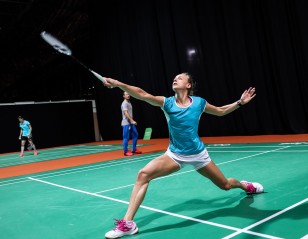
Double Duty in Rio! 11 August 2016
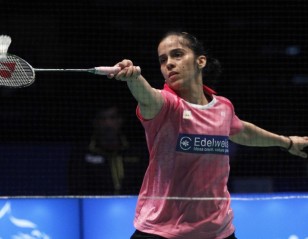
Top Guns Ready to Fire 11 August 2016
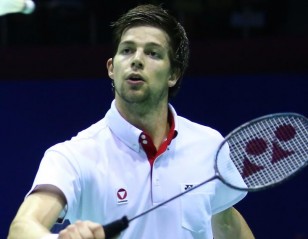
Under No Illusions 10 August 2016
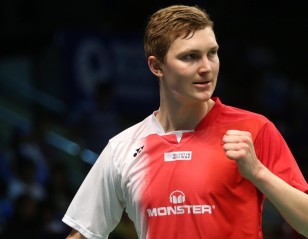
Danes Hope to Capitalise on Strong Season 10 August 2016
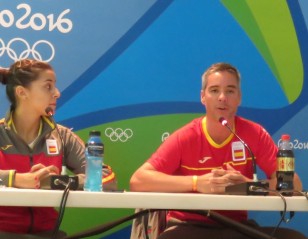
A New Carolina, Says Rivas 9 August 2016
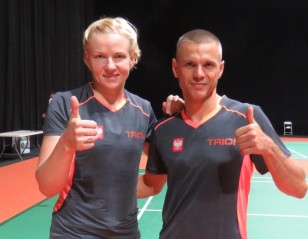
Fifth Olympic Salvo for Mateusiak 8 August 2016
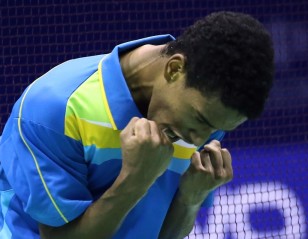
Savouring the Olympic Flavour 6 August 2016
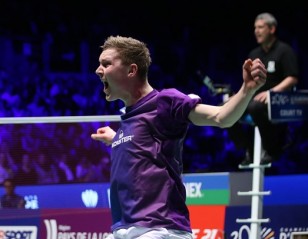
Singles Preview: The Promise of Epic Battles 6 August 2016
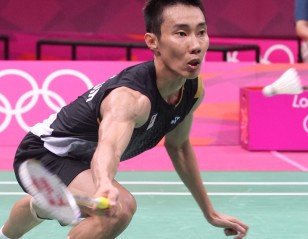
A First for Flag-Bearer Lee 4 August 2016
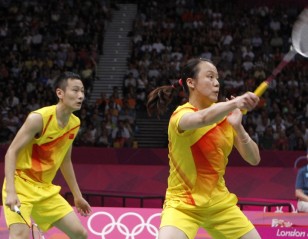
Zhang/Zhao the Opening Act 3 August 2016
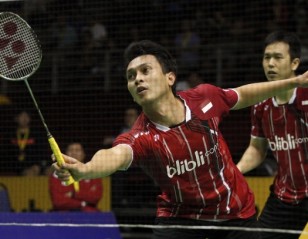
Doubles Preview: Group Surprises Lurk for the Unwary 1 August 2016
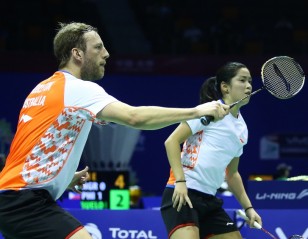
Rio Countdown: Aussies Living a Dream 29 July 2016
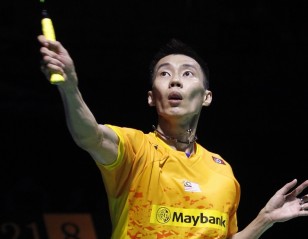
‘One Match at a Time’ 28 July 2016
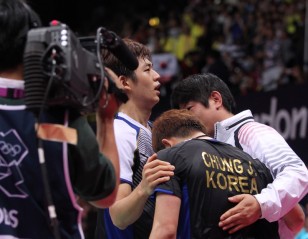
Olympic Channel Launch on August 21 28 July 2016

Rio Countdown: Ygor Oliveira’s Samba Secret 28 July 2016
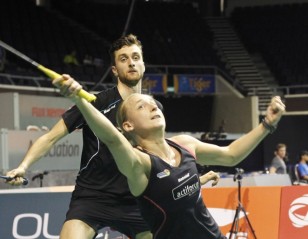
Rio Countdown: Dutch Duo Seek to Re-create Magic 27 July 2016
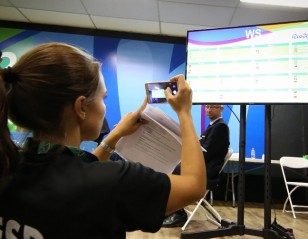
Contenders Brace for Hard Battles 27 July 2016
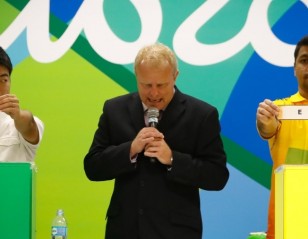
Possible Lee-Lin ‘Semis’ Showdown 27 July 2016
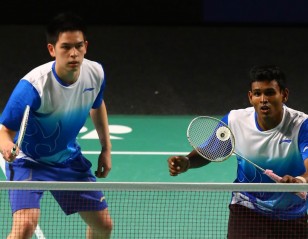
Rio Countdown: Australian Duo Look to Make Impact 26 July 2016
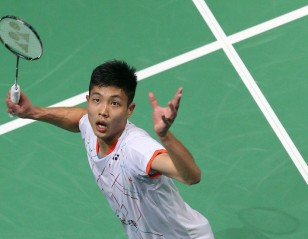
Rio Countdown: Chou Riding High on Confidence 25 July 2016
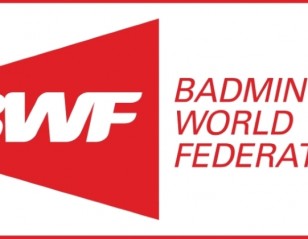
Mechanics of the Olympic Draw 22 July 2016
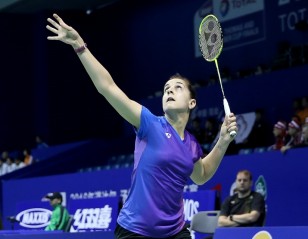
Lee, Marin Lead Seedings 21 July 2016
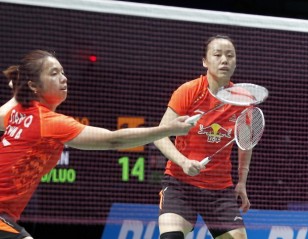
No Rio Repeat for Olympic Champs 19 July 2016

BWF Launches Olympic Website 11 July 2016
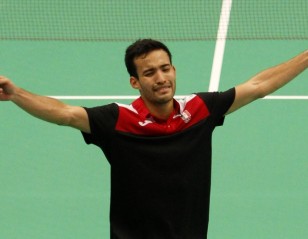
Mexico Completes Olympic List 5 July 2016

Australia Make Rio Picks 10 June 2016
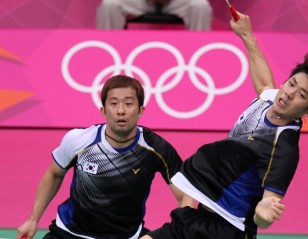
Badminton to Feature in Olympic Channel Programming 7 June 2016
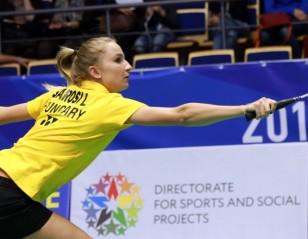
Trio Get Rio 2016 Tripartite Places 25 May 2016
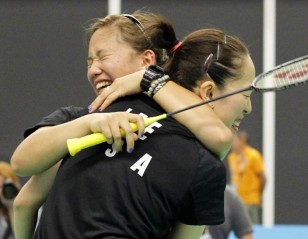
Provisional List of Olympic Qualifiers Published 5 May 2016
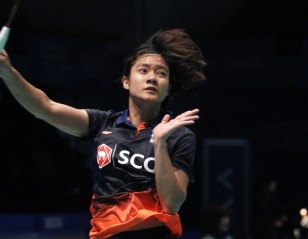
Continental Championships: The Home Stretch to Rio Begins 24 April 2016
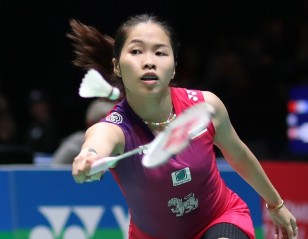
Calmer, Tougher Intanon Believes She Can Get Better 19 April 2016
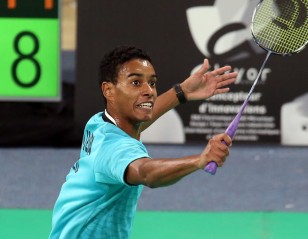
Ygor Oliveira’s Samba Secret 8 April 2016
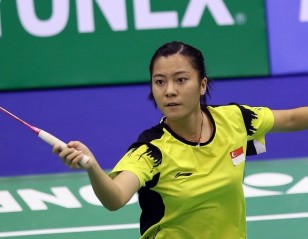
Liang Xiaoyu Sniffs Olympics Chance 15 March 2016
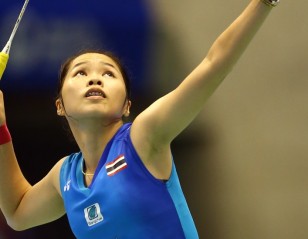
Intanon Ready for Battles Ahead 2 March 2016
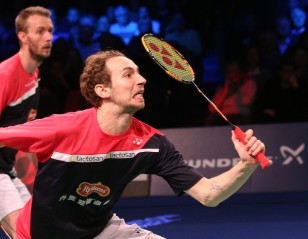
Race to Rio: Close Call for Doubles Contenders 18 January 2016
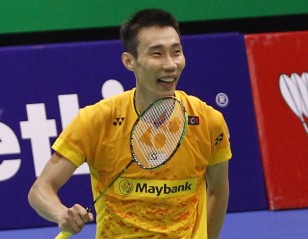
Race to Rio: Chen Leads, Lee Close Behind 14 January 2016
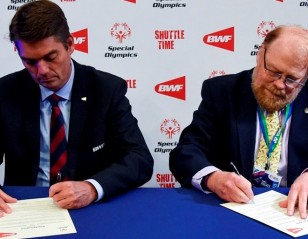
Special Olympics Embrace BWF Shuttle Time 26 October 2015
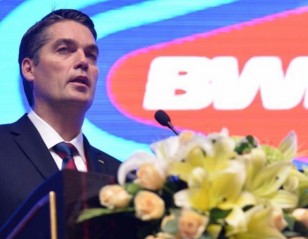
Høyer: Innovation and Integrity Key Ingredients 16 May 2015
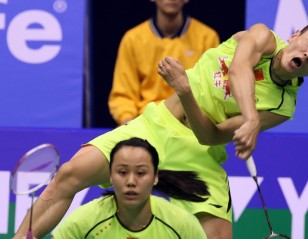
Rio 2016: The Race Begins 4 May 2015
